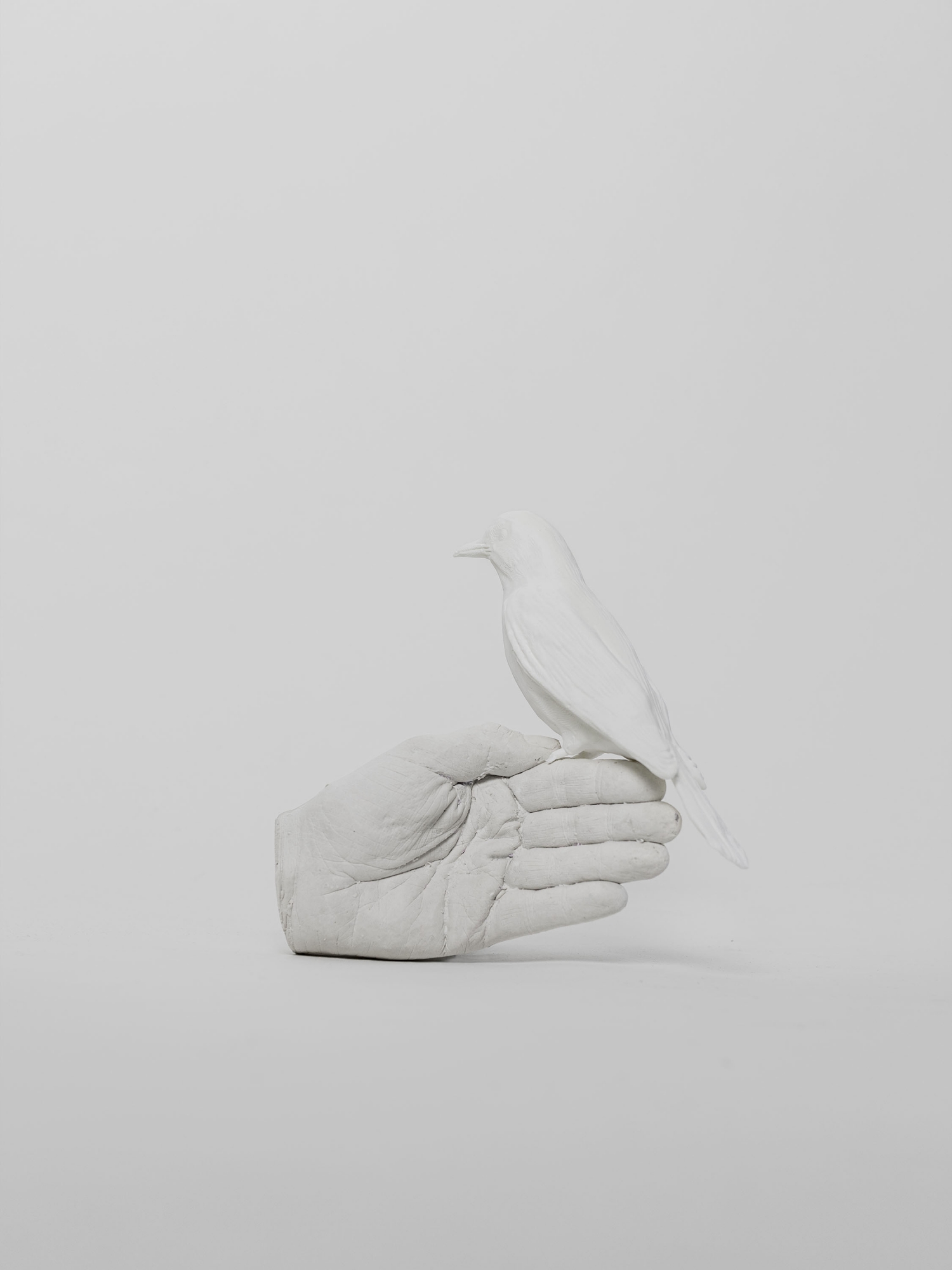AXEL ANTASStories make worlds / Worlds make stories 23.11.2019 – 22.12.2019
 Lost to sight (Pohnpei Starling), 2019
Lost to sight (Pohnpei Starling), 2019C-print
98 x 74 cm
edition 5 + 2AP
The
installation and the photographs in Axel Antas’ exhibition are works with
layers of signification and time. Antas has a conceptual and philosophical
approach to nature, and in the exhibition he explores how working through
strata of materials, artistic techniques, forms, and combinations can be a way
to relate to nature and the larger world around us.
Lost to sight (2019) is a series of photographs showing small, white sculptures of birds sitting on hands. Some of which are closed like a fist, while others are open. The birds are examples of extinct species, and we see among others the Black-faced honeycreeper and the Least Vermilion flycatcher. Even though the photographs are all monochromatic and minimalistic, and the shadows from the sculptures are the main sign of space in the photographs, the picture space is compound. In this space numerous versions of materiality, technology, stories, and sculptural processes are present at the same time: The materiality of the picture space is highlighted by the visible processes of the traditional plaster casting of the hands, the digital 3D printing of the birds based on sketches and images, and the sculptural arrangement of hand and bird.
With this artistic method Antas is translating materials, forms, stories and analogue as well as digital technologies through each other and thereby pointing to an understanding of art as processual and not hierarchical. Walter Benjamin writes in “The Task of the Translator” (1923), that a translation touches the original only lightly, and that the translator is liberating the original in a new re-creation. In his works Antas doesn’t emphasize a potential original condition, on the contrary he, as Benjamin, overcomes dichotomies between original/copy; autonomy/relativity and truth/false. In the exhibition there are no originals or true versions. Like in the stories about the extinct bird species sitting on human hands: how can we determine the reason of their destiny and what ought to be done? The idea of making versions is the essence of our digital technologies with its never ending circulation and transformation of immaterial information, and Antas is in a subtle way reworking this condition and pointing to the always possible gap that exists between our physical and immaterial world and our empirical experience of it.
Antas’ Study of a tree (2019) is a large installation framed by a 3.6 x 3.6 metres platform we can walk around. This room is darker than the first one with the white photographs from series Lost to sight (2019). The light is set, so the surface of the platform reflects the fragments of a tree standing and lying on it. These trunks are in different sizes, the tallest one standing is 2,4 metres, and all of them are cast in dark grey material. The monochrome colour and the casting technique make the fragments extremely detailed, every little crack and irregularity in the surface is visible. This is also the case in Fragments (2019), which are large black and grey photographs of broken castings appearing like archaeological findings. The installation is only one version of the tree; the creation process traverses through layers of different materials, forms and techniques.
The study of the tree manifests itself over time, and here Antas’ methods of translating is gradual and careful; like if he wants to remind us, that we have to take our time to study and develop new and more careful interactions with nature. Antas emphasizes a meditative process of producing and experiencing art, and in this perspective his real study in the exhibition is the phenomenology of our experience of nature and how we relate to the world around us.
Charlotte Præstegaard Schwartz
PhD, Art historian and researcher, Statens Museum for Kunst, Denmark
